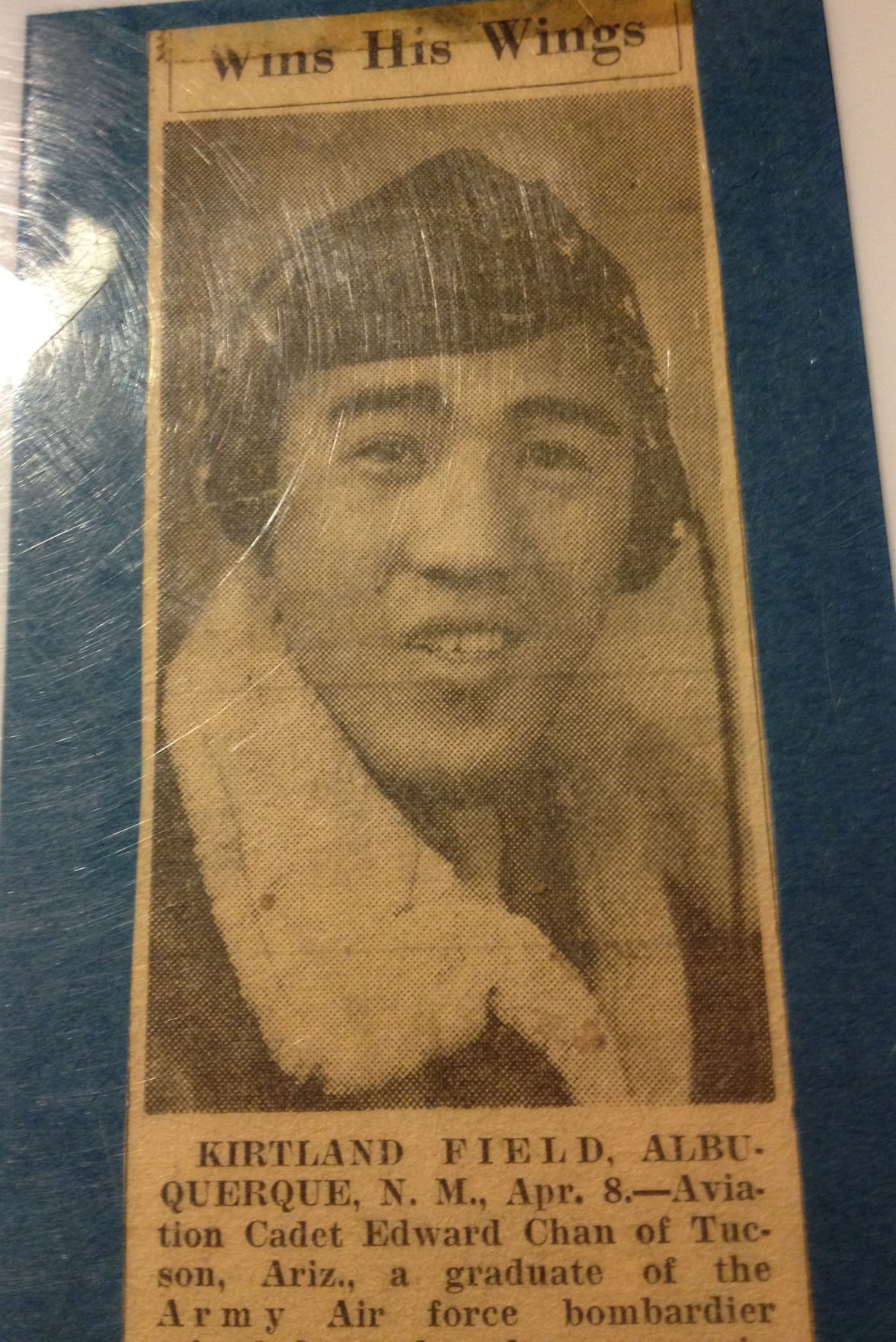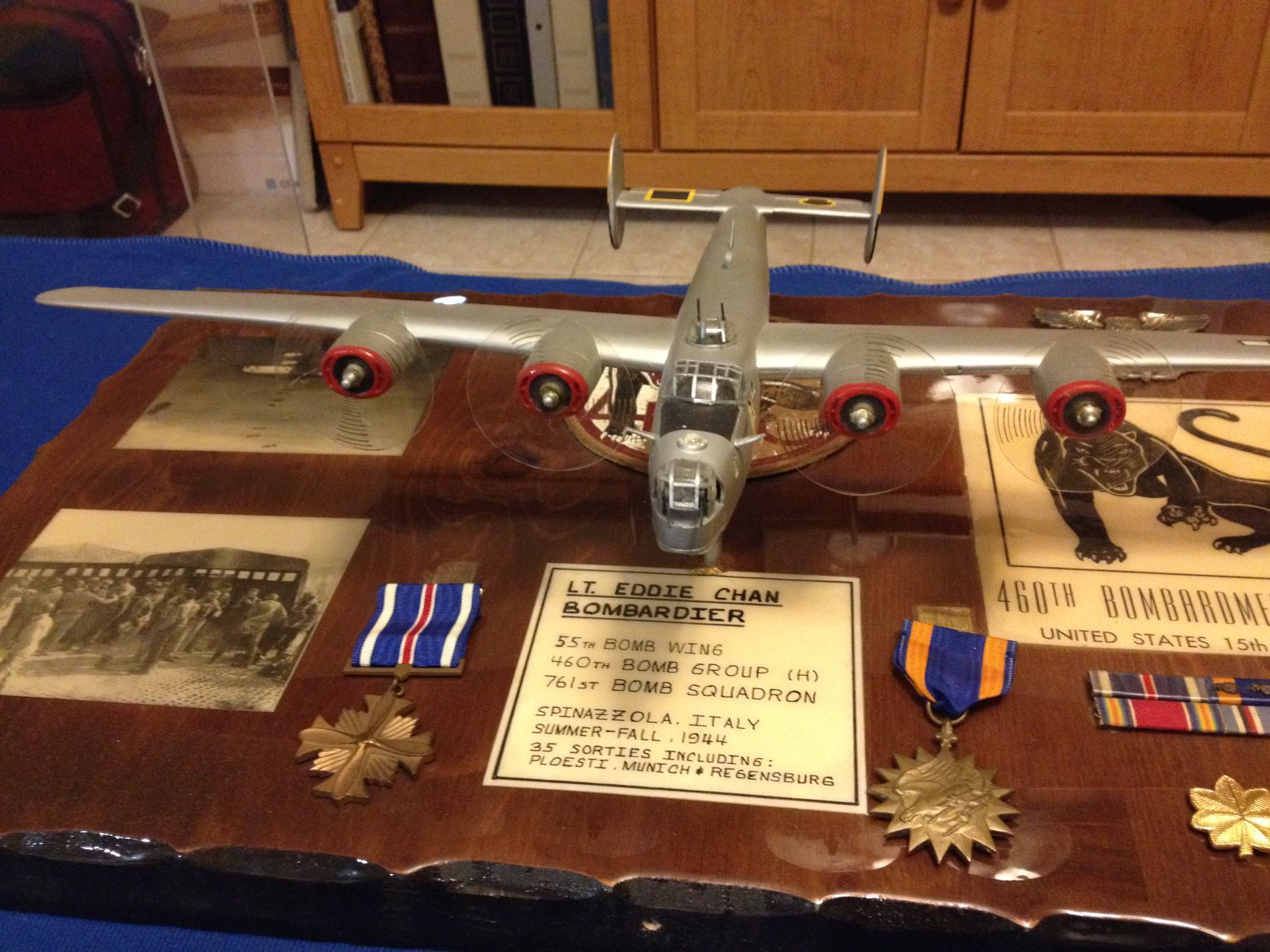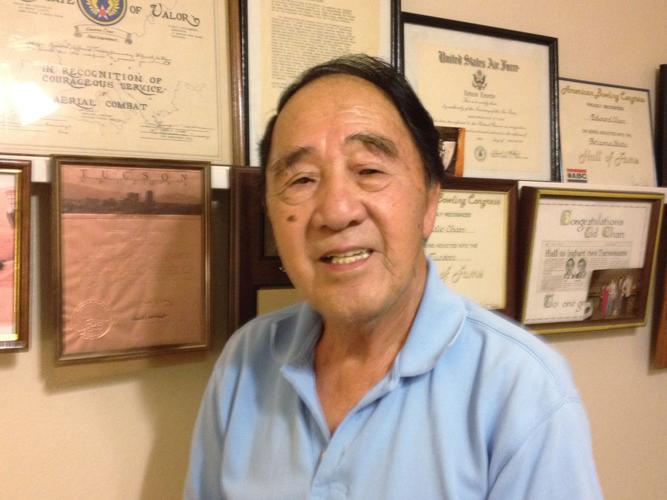At age 20, Edward Chan was a bombardier on a B-24 Liberator dropping bombs over Europe during World War II.
He was among a crew of 10 in a bomber named “Hula Honey” that bore the brunt of enemy fire while assigned to the 460th Bombardment Group (Heavy) of the 15th Air Force U.S. Air Corps in Spinazzola, Italy.
The Tucson High School graduate, who was studying civil engineering at the University of Arizona, left his studies at 19 to enlist.
By 1944, he was conducting bombing missions and was surrounded by death.
 |
“We flew 35 sorties over enemy territory in the southern France campaign,” Chan, 92, said from his home on Tucson’s north side.
“All the missions were difficult,” he said, explaining he was the one to synchronize the sights that directed how the 500-pound bombs would fall from 20,000 feet. Targets were oil fields, ball-bearing factories, submarine pens and munitions factories. Their destruction hampered the enemy’s war efforts.
“It was rough because we were hit by German flak — artillery shot from the ground bursting all around us,” recalled Chan, while pulling out a book dedicated to those of the 460th Bombardment Group who died in Europe. The group’s insignia was the black panther, which was “symbolic of swift, iron-clawed revenge,” according to the history of the 460th.
Chan recalled how American P-51 fighters would escort his squadron to protect it from attacks by German ME-109 fighters. “I saw our planes with rudders shot off or being hit by ground artillery. My plane was hit several times during our 35 missions, but we never were shot down,” he said.
“I saw others who were shot down,” recalled Chan, the expression on his face turning solemn.
 |
Chan’s son, Stewart, accompanied his father in April on an Honor Flight to Washington, D.C., so the elder Chan could see the National World War II Memorial and be recognized with other veterans for their service. Stewart Chan said his father does not talk about the war, but on that trip he learned about a brave act his father did on a mission.
“He told a story about the bomb-bay door being stuck, and it had to be secured so the plane could land. He went out on the catwalk and secured the door. It was very scary, but he did it,” his son recalled.
In addition to Germany and Italy, Chan’s missions took him over France, Romania, Austria, Yugoslavia, Hungary, Poland and Czechoslovakia. He enlisted as a cadet and was honorably discharged in 1946 as a 1st lieutenant with honors, including a Distinguished Flying Cross and an Air Medal with three oak leaf clusters.
Chan returned to Tucson after the service and married Bessie Don Chan in 1950. The couple has three children and four grandchildren. Chan also was in the Air Force Reserve with the 330 Maintenance Group and retired in 1967.
He worked as an electrical and mechanical inspector for the then-Hughes Aircraft Co. starting in 1951, retiring as superintendent of quality control at Raytheon Missile Systems in 1984.
“My life has been good. I have no complaints,” said Chan, while Bessie looked on with a smile.






